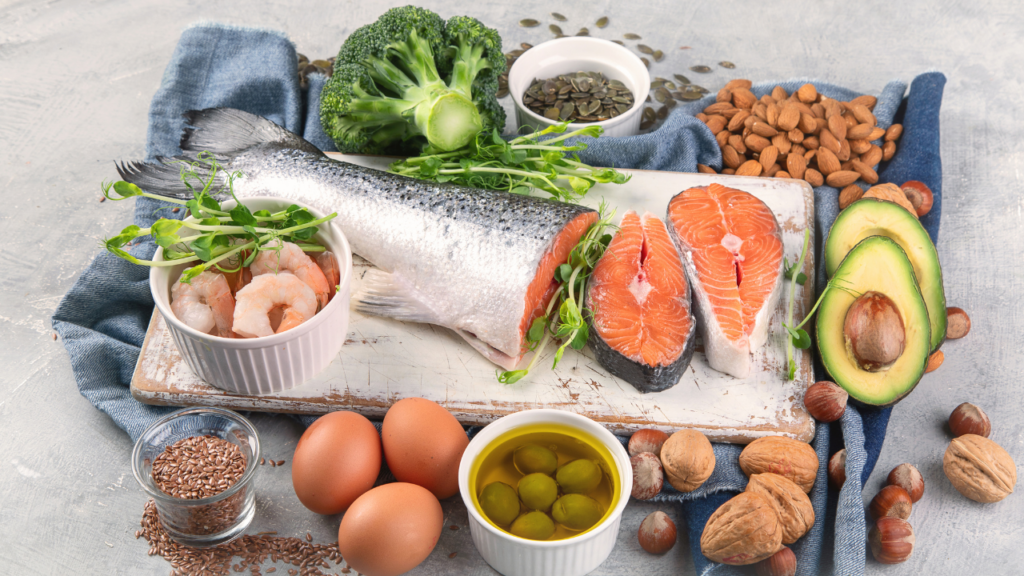Keep Your Heart Strong During Menopause: A Practical Guide
When Lisa hit her 50s, she thought the hot flashes and mood swings were the biggest hurdles of menopause. But then came something unexpected: a strange flutter in her chest during her morning walk. “It’s probably nothing,” she thought, brushing it off as stress. But the flutters kept happening, and her doctor confirmed what she didn’t see coming—her heart health needed attention.
Lisa’s story isn’t unique. Menopause can sneak up on your cardiovascular system in ways that often fly under the radar. The good news? You have the power to protect your heart during this transition with a few simple lifestyle changes. Read on to uncover why your heart might need a little extra TLC during menopause and, more importantly, how you can give it just that!
Signs Your Heart Might Be Struggling
Your heart doesn’t always send loud warning signals when something’s wrong—it often whispers in subtle, easy-to-miss ways. During menopause, these signs can be even trickier to recognize because many symptoms overlap with common menopausal changes like fatigue or anxiety. Knowing what to look out for can help you catch potential issues early and seek help before they escalate.
Here are the key signs your heart might be struggling:
1. Shortness of Breath
Have you noticed yourself gasping for air after climbing stairs or doing a simple chore that never used to leave you winded? Shortness of breath during routine activities can signal that your heart is struggling to pump blood effectively. This can be a sign of heart disease or even the early stages of heart failure.
2. Fatigue That Won’t Quit
Sure, menopause can leave you feeling tired thanks to night sweats and disrupted sleep. But extreme or persistent fatigue—especially if it feels out of proportion to your activity level—can be a red flag. Your heart might be working overtime to compensate for narrowed or blocked arteries, leaving you feeling drained.
3. Chest Pain or Discomfort
When most people think of heart problems, chest pain is the first thing that comes to mind. However, for women, this symptom might feel more subtle or different than the classic “crushing” pain described by men. You might experience:
- A tightness, pressure, or squeezing sensation.
- Pain that radiates to your jaw, back, or arms.
- Unusual discomfort that comes and goes.
If you notice any of these sensations, don’t ignore them. Seek medical attention right away.
4. Heart Palpitations or Irregular Heartbeat
Feeling like your heart is skipping beats, fluttering, or racing out of the blue? Hormonal changes during menopause can sometimes make you more prone to heart palpitations. While these are often harmless, persistent or irregular palpitations might indicate an underlying issue like arrhythmia or atrial fibrillation, which requires medical evaluation.
5. Swelling in Your Legs, Ankles, or Feet
Swelling, known as edema, can be a sign that your heart isn’t pumping blood efficiently, causing fluid to build up in your extremities. While this can also be linked to other conditions, it’s worth discussing with your doctor if it persists or worsens.
6. Dizziness or Lightheadedness
Ever feel like the room is spinning or that you’re about to faint, even when you’re just sitting down? This could be a sign of low blood pressure, arrhythmia, or reduced blood flow to the brain—all potential indicators of heart trouble.
7. Nausea, Sweating, or Flu-Like Symptoms
Heart problems in women don’t always show up as obvious chest pain. In some cases, symptoms can mimic the flu, with nausea, unexplained sweating, or general discomfort. These are easy to dismiss but should raise a red flag if they occur alongside other heart-related symptoms.
Note: If you experience any combination of these symptoms, it’s essential to see a doctor. Don’t fall into the trap of thinking, “I’ll deal with it later,” or brushing it off as “just menopause.” Your heart is your body’s powerhouse, and paying attention to its signals can save your life. Remember: Early intervention can make all the difference. So, if something feels off, trust your gut and make that call to your healthcare provider.
Tips for a Heart-Healthy Menopause
Now that you know the signs to watch for, let’s dive into the steps you can take to keep your heart in tip-top shape during menopause. These strategies aren’t just about managing symptoms—they’re about empowering you to live a long, healthy life. So, let’s get into some heart-healthy tips that can help you feel strong and vibrant during this time of change!
1. Move That Body—Exercise is Key!
Exercise isn’t just about staying fit; it’s a powerhouse for your heart. Regular physical activity helps keep your heart strong, lowers blood pressure, and improves cholesterol levels. Here’s how it works:
- Boosts circulation: When you exercise, your heart pumps blood more efficiently, improving overall circulation and lowering your risk of heart disease.
- Lowers bad cholesterol: Regular cardio workouts—think brisk walking, cycling, or swimming—can help lower those high levels of LDL (the “bad” cholesterol), while increasing HDL, the “good” cholesterol.
- Supports weight management: Maintaining a healthy weight is critical for heart health. Exercise, combined with a balanced diet, helps keep your weight in check and reduces strain on your cardiovascular system.
Aim for at least 30 minutes of moderate activity most days of the week. And if you’re not used to exercising, don’t worry! Start slow, and gradually increase your activity level. Even a daily walk is a great place to start.
2. Rethink Your Plate—Eat Heart-Healthy Foods
What’s on your plate matters more than ever during menopause. The foods you choose can either support or harm your heart. Here’s how to make heart-healthy eating easy:
- Go for whole foods: Load up on fruits, vegetables, whole grains, and legumes. These foods are packed with fiber, antioxidants, and essential nutrients that support heart health.
- Choose healthy fats: Instead of trans fats and saturated fats found in processed snacks and fatty cuts of meat, opt for unsaturated fats like those found in avocados, nuts, seeds, and olive oil.
- Watch your salt: Too much salt can raise your blood pressure, increasing your risk of heart disease. Reduce your intake of salty foods like processed snacks, canned soups, and restaurant meals.
- Limit sugar: Added sugars can contribute to weight gain, diabetes, and heart disease. Stick to whole fruits and minimize sugary drinks, baked goods, and processed foods.
Here’s a simple rule to follow: If it’s processed or packaged, try to avoid it. Instead, aim to fill your plate with colorful, nutrient-dense foods that your heart will thank you for!
3. Stress Less—Find Your Calm
Menopause can bring a whirlwind of emotional ups and downs, and stress takes a major toll on your heart. Chronic stress can raise blood pressure, increase inflammation, and disrupt your heart’s natural rhythm. Finding effective ways to manage stress is key to heart health during this time of transition.
Here are a few ideas for easing stress:
- Yoga and meditation: These practices are proven to reduce stress, lower blood pressure, and improve overall well-being. Even just 10 minutes a day can make a big difference!
- Deep breathing exercises: Try taking a few minutes each day to practice deep breathing or progressive muscle relaxation. This can activate your body’s relaxation response, helping to counteract the effects of stress.
- Engage in hobbies you love: Whether it’s reading, gardening, or crafting, activities that bring you joy can help you unwind and de-stress.
Don’t let stress take the driver’s seat in your life. Prioritize relaxation and self-care—it’s an investment in both your heart and your mental well-being.
4. Mind Your Numbers—Stay on Top of Health Checks
Regular check-ups are crucial for maintaining heart health, especially during menopause. Monitoring your cholesterol, blood pressure, and blood sugar levels helps detect potential issues early and allows you to take action before they turn into bigger problems.
Here’s what to keep track of:
- Blood pressure: High blood pressure is a major risk factor for heart disease. Aim to keep it below 130/80 mmHg. If you’re already dealing with hypertension, follow your doctor’s recommendations for managing it.
- Cholesterol: Have your cholesterol levels checked at least once every five years. Pay attention to both LDL (bad cholesterol) and HDL (good cholesterol) levels, and work with your doctor to keep them balanced.
- Blood sugar levels: Menopause can increase your risk of developing type 2 diabetes, which can harm your heart. Regular blood sugar testing helps catch potential issues early.
By keeping an eye on these important numbers, you can take steps to reduce your heart disease risk and live a healthier, longer life.
5. Stop Smoking (and Avoid Secondhand Smoke)
If you smoke, quitting is one of the most important steps you can take for your heart. Smoking is a major contributor to cardiovascular disease, as it damages blood vessels, raises blood pressure, and lowers oxygen levels in your blood.
The good news? It’s never too late to quit! Within just one year of quitting smoking, your risk of heart disease drops by half. If you’re struggling to quit, talk to your doctor about resources or programs that can help, from nicotine replacement therapies to counseling.
And even if you’re not a smoker, avoid secondhand smoke as much as possible. It can still harm your heart and overall health.
6. Consider Hormone Replacement Therapy (HRT)—But Talk to Your Doctor
Hormone replacement therapy (HRT) may help manage menopausal symptoms like hot flashes, night sweats, and mood swings, and for some women, it can also offer heart-protective benefits. Estrogen plays a role in keeping your blood vessels flexible, so when estrogen levels drop, you may experience changes in your cardiovascular system.
However, HRT isn’t for everyone, and it’s essential to weigh the risks and benefits with your healthcare provider. Your doctor can help determine whether HRT is appropriate for your specific health needs and heart health status.
Take Control of Your Heart Health
The bottom line? Menopause doesn’t have to mean putting your heart on the back burner. By adopting a heart-healthy lifestyle—through exercise, eating well, managing stress, and staying on top of your health checks—you can protect your heart and feel strong, vibrant, and confident as you move through this transformative life stage. The power is in your hands, and your heart will thank you for it!





